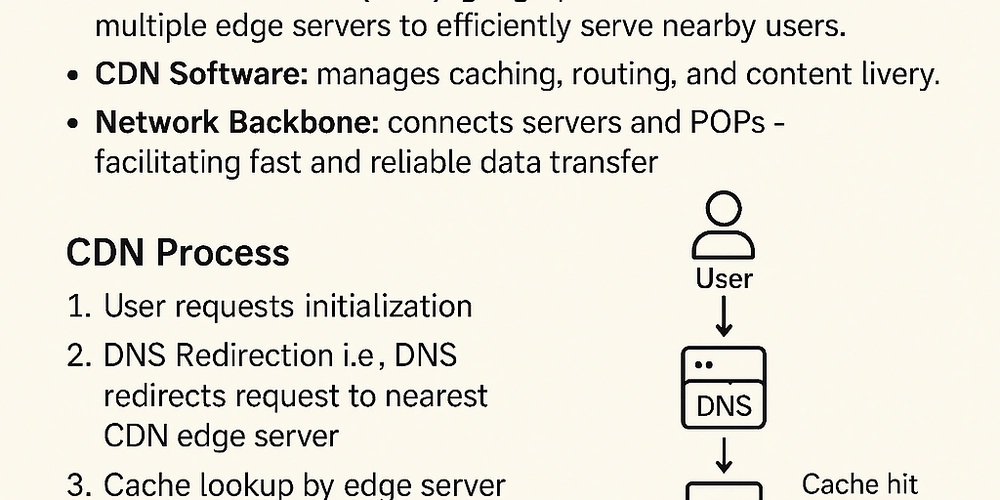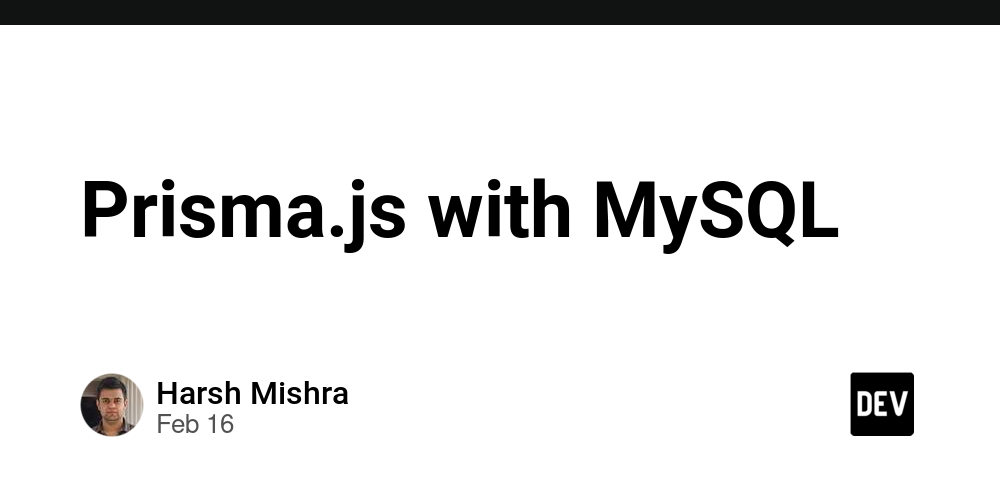I'm embarrassed by how much code I cut from my test suite
My parser test suite was a house of cards I’ve never been prouder to see collapse. I found a pattern that worked, kept working, and then worked a little too well. Until rust-analyzer couldn't process my file anymore. Best practice says to refactor before your LSP craps out, but alas. Here's how I saved several thousand lines of test code in my Memphis parser. Designing an expressive parser test suite I’m going to break all rules of writing and tell this story Benjamin Button style. We begin with this idyllic test case. Wouldn’t it be lovely to verify our AST in an expressive yet relaxed way? Yes, it is lovely. #[test] fn expression() { let input = "2 + 3 * (4 - 1)"; let expected_ast = bin_op!( int!(2), Add, bin_op!(int!(3), Mul, bin_op!(int!(4), Sub, int!(1))) ); assert_ast_eq!(input, expected_ast, Expr); let input = "2 // 3"; let expected_ast = bin_op!(int!(2), IntegerDiv, int!(3)); assert_ast_eq!(input, expected_ast, Expr); } This test wasn’t all sunflowers and rainbows. This 16-line fact-checker used to come in at a bloated 38 lines. Have a peep yourself. #[test] fn expression() { let input = "2 + 3 * (4 - 1)"; let context = init(input); let expected_ast = Expr::BinaryOperation { left: Box::new(Expr::Integer(2)), op: BinOp::Add, right: Box::new(Expr::BinaryOperation { left: Box::new(Expr::Integer(3)), op: BinOp::Mul, right: Box::new(Expr::BinaryOperation { left: Box::new(Expr::Integer(4)), op: BinOp::Sub, right: Box::new(Expr::Integer(1)), }), }), }; match context.parse_oneshot::() { Err(e) => panic!("Parser error: {:?}", e), Ok(ast) => assert_eq!(ast, expected_ast), } let input = "2 // 3"; let context = init(input); let expected_ast = Expr::BinaryOperation { left: Box::new(Expr::Integer(2)), op: BinOp::IntegerDiv, right: Box::new(Expr::Integer(3)), }; match context.parse_oneshot::() { Err(e) => panic!("Parser error: {:?}", e), Ok(ast) => assert_eq!(ast, expected_ast), } } The tool I used to reduce my boilerplate was declarative macros, Rust’s way of generating Rust code at compile time. By the end of my cleanup trance, I improved these areas: expressing Python types (int, str, bool, list, set, tuple) expressing operations (binary, unary, and logical ops) wrapping the actual entrypoint to parse the input wrapping error handling for the common case The result? Shorter tests and clearer intentions. Expressing Python types I can now write int!(3) instead of Expr::Integer(3). Blah blah blah so what. This one doesn’t save a whole lot, but let’s look at two more. I can now write list![int!(1), int!(2), int!(3)] and set![int!(1), int!(2), int!(3)]. Glancing at the implementation for those macros, we see another key. macro_rules! list { ($($expr:expr),* $(,)?) => { Expr::List(vec![ $($expr),* ]) }; } macro_rules! set { ($($expr:expr),* $(,)?) => { Expr::Set(HashSet::from([ $($expr),* ])) }; } My parser tests no longer care that an Expr::List accepts a Vec, while a Expr::Set accepts a HashSet. One could argue I don’t need the HashSet at all because this is just the AST, not the evaluation stage of the interpreter. In that case, I could change the underlying representation by updating the macro. Expressing operations This one starts to get really fun. I can now write bin_op!(var!("a"), BitwiseAnd, var!("b")), which expands to the following. macro_rules! bin_op { ($left:expr, $op:ident, $right:expr) => { Expr::BinaryOperation { left: Box::new($left), op: BinOp::$op, right: Box::new($right), } }; } Not only does this macro hide the two Box initializations (necessary in a recursive enum), it also allows us to write BitwiseAnd rather than BinOp::BitwiseAnd, all without sacrificing any type checking. Wrapping the parser entrypoint Previously, I had to write this, which isn’t awful, but is also awful. let context = init("2 + 3"); match context.parse_oneshot::() { ... } We’re working with a MemphisContext object here, another bloated structure I use to orchestrate the whole evaluation flow. The problem is, this is an evolving interface. I learned the hard way that without a level of indirection in my tests, I’d have to tweak this pattern constantly. Across hundreds of tests, that is obnoxious. The new approach uses a straight forward parse! macro. let ast = parse!($input, Statement); assert_stmt_eq!(ast, $expected); Wrapping the happy path error handling As Yogi Berra famously said, 90% of unit tests are one-half mental. I applied this philosophy to design parse! to handle the h

My parser test suite was a house of cards I’ve never been prouder to see collapse. I found a pattern that worked, kept working, and then worked a little too well. Until rust-analyzer couldn't process my file anymore. Best practice says to refactor before your LSP craps out, but alas. Here's how I saved several thousand lines of test code in my Memphis parser.
Designing an expressive parser test suite
I’m going to break all rules of writing and tell this story Benjamin Button style.
We begin with this idyllic test case. Wouldn’t it be lovely to verify our AST in an expressive yet relaxed way? Yes, it is lovely.
#[test]
fn expression() {
let input = "2 + 3 * (4 - 1)";
let expected_ast = bin_op!(
int!(2),
Add,
bin_op!(int!(3), Mul, bin_op!(int!(4), Sub, int!(1)))
);
assert_ast_eq!(input, expected_ast, Expr);
let input = "2 // 3";
let expected_ast = bin_op!(int!(2), IntegerDiv, int!(3));
assert_ast_eq!(input, expected_ast, Expr);
}
This test wasn’t all sunflowers and rainbows. This 16-line fact-checker used to come in at a bloated 38 lines.
Have a peep yourself.
#[test]
fn expression() {
let input = "2 + 3 * (4 - 1)";
let context = init(input);
let expected_ast = Expr::BinaryOperation {
left: Box::new(Expr::Integer(2)),
op: BinOp::Add,
right: Box::new(Expr::BinaryOperation {
left: Box::new(Expr::Integer(3)),
op: BinOp::Mul,
right: Box::new(Expr::BinaryOperation {
left: Box::new(Expr::Integer(4)),
op: BinOp::Sub,
right: Box::new(Expr::Integer(1)),
}),
}),
};
match context.parse_oneshot::<Expr>() {
Err(e) => panic!("Parser error: {:?}", e),
Ok(ast) => assert_eq!(ast, expected_ast),
}
let input = "2 // 3";
let context = init(input);
let expected_ast = Expr::BinaryOperation {
left: Box::new(Expr::Integer(2)),
op: BinOp::IntegerDiv,
right: Box::new(Expr::Integer(3)),
};
match context.parse_oneshot::<Expr>() {
Err(e) => panic!("Parser error: {:?}", e),
Ok(ast) => assert_eq!(ast, expected_ast),
}
}
The tool I used to reduce my boilerplate was declarative macros, Rust’s way of generating Rust code at compile time.
By the end of my cleanup trance, I improved these areas:
- expressing Python types (int, str, bool, list, set, tuple)
- expressing operations (binary, unary, and logical ops)
- wrapping the actual entrypoint to parse the input
- wrapping error handling for the common case
The result? Shorter tests and clearer intentions.
Expressing Python types
I can now write int!(3) instead of Expr::Integer(3). Blah blah blah so what.
This one doesn’t save a whole lot, but let’s look at two more.
I can now write list![int!(1), int!(2), int!(3)] and set![int!(1), int!(2), int!(3)]. Glancing at the implementation for those macros, we see another key.
macro_rules! list {
($($expr:expr),* $(,)?) => {
Expr::List(vec![
$($expr),*
])
};
}
macro_rules! set {
($($expr:expr),* $(,)?) => {
Expr::Set(HashSet::from([
$($expr),*
]))
};
}
My parser tests no longer care that an Expr::List accepts a Vec, while a Expr::Set accepts a HashSet. One could argue I don’t need the HashSet at all because this is just the AST, not the evaluation stage of the interpreter. In that case, I could change the underlying representation by updating the macro.
Expressing operations
This one starts to get really fun. I can now write bin_op!(var!("a"), BitwiseAnd, var!("b")), which expands to the following.
macro_rules! bin_op {
($left:expr, $op:ident, $right:expr) => {
Expr::BinaryOperation {
left: Box::new($left),
op: BinOp::$op,
right: Box::new($right),
}
};
}
Not only does this macro hide the two Box initializations (necessary in a recursive enum), it also allows us to write BitwiseAnd rather than BinOp::BitwiseAnd, all without sacrificing any type checking.
Wrapping the parser entrypoint
Previously, I had to write this, which isn’t awful, but is also awful.
let context = init("2 + 3");
match context.parse_oneshot::<Expr>() {
...
}
We’re working with a MemphisContext object here, another bloated structure I use to orchestrate the whole evaluation flow. The problem is, this is an evolving interface. I learned the hard way that without a level of indirection in my tests, I’d have to tweak this pattern constantly. Across hundreds of tests, that is obnoxious.
The new approach uses a straight forward parse! macro.
let ast = parse!($input, Statement);
assert_stmt_eq!(ast, $expected);
Wrapping the happy path error handling
As Yogi Berra famously said, 90% of unit tests are one-half mental.
I applied this philosophy to design parse! to handle the happy path, the roughly 90% of my parser tests I expect to be able to parse their Python input successfully. Since these are tests and nothing matters, we can fail loudly on any unexpected exceptions and return the AST quietly otherwise.
macro_rules! parse {
($input:expr, $pattern:ident) => {
match init($input).parse_oneshot::<$pattern>() {
Err(e) => panic!("Parser error: {:?}", e),
Ok(ast) => ast,
}
};
}
And for those 10% of tests where we expect a parse error? This will do just fine.
macro_rules! expect_error {
($input:expr, $pattern:ident) => {
match init($input).parse_oneshot::<$pattern>() {
Ok(_) => panic!("Expected a ParserError!"),
Err(e) => e,
}
};
}
This is what it now looks like to confirm an improperly structured dict. While I love match statements, I love even more no longer having to write them.
let input = "{ 2, **second }";
let e = expect_error!(input, Expr);
assert_eq!(e, ParserError::SyntaxError);
The End
I’m embarrassed I didn’t do these steps sooner. Please learn from my mistakes and treat your tests the way you wish to be treated.
Subscribe & Save [on nothing]
Want a software career that actually feels meaningful? I wrote a free 5-day email course on honing your craft, aligning your work with your values, and building for yourself. Or just not hating your job! Get it here.
Build [With Me]
I mentor software engineers to navigate technical challenges and career growth in a supportive, sometimes silly environment. If you’re interested, you can explore my mentorship programs.
Elsewhere [From Scratch]
In addition to mentoring, I also write about neurodivergence and meaningful work. Less code and the same number of jokes.
- Rebranding? I hardly knew branding - From Scratch Press


















.jpg?#)
























































